Find Help
More Items From Ergsy search
-
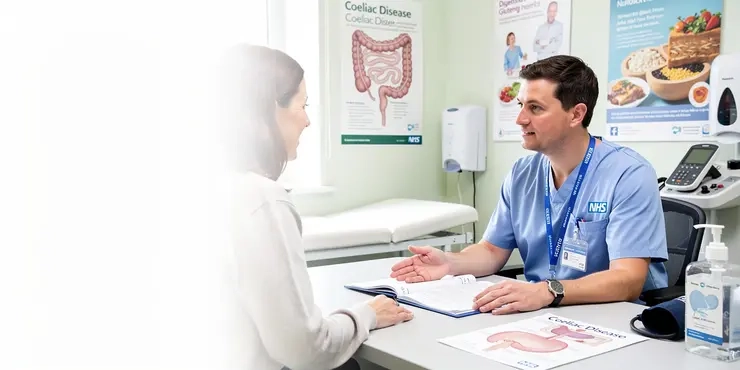
Coeliac Disease: Session 1: What is Coeliac Disease?
Relevance: 100%
-
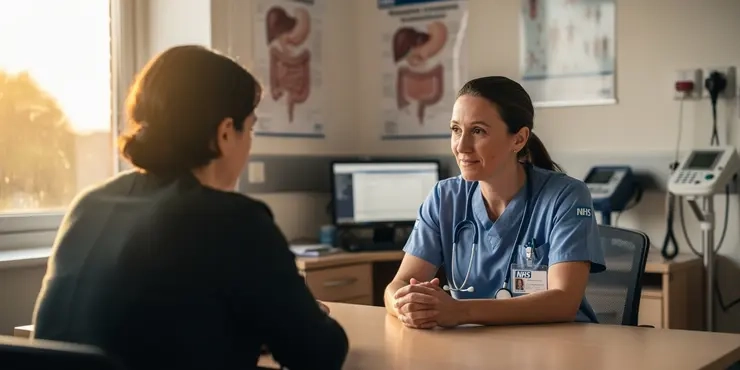
Coeliac disease
Relevance: 100%
-
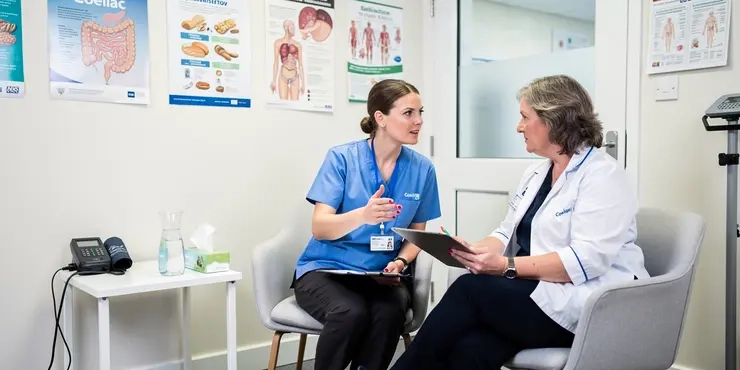
Causes of coeliac disease
Relevance: 95%
-
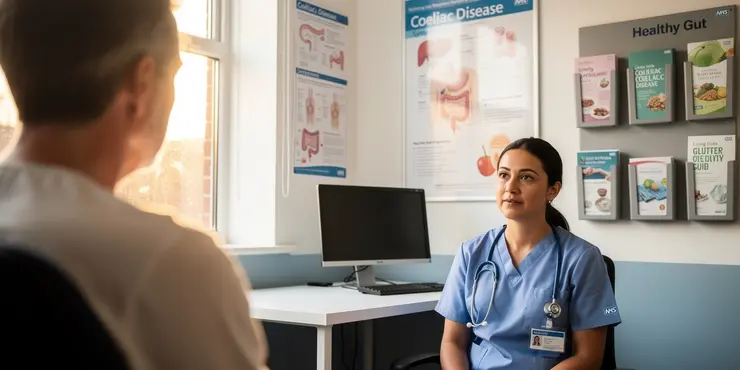
Symptoms of coeliac disease
Relevance: 93%
-
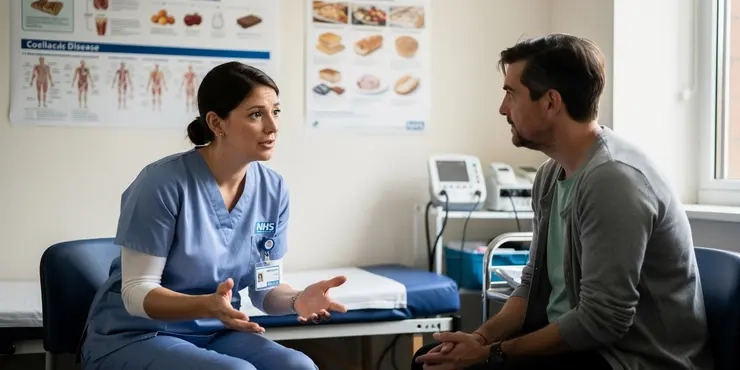
NHSGGC - What is Coeliac Disease?
Relevance: 92%
-
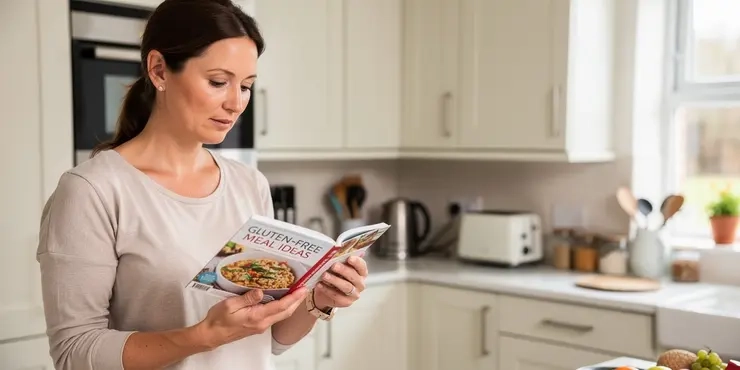
Living Well with Coeliac Disease
Relevance: 90%
-
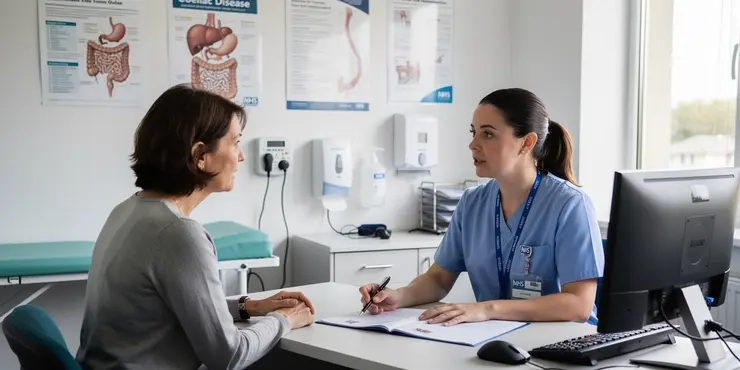
Diagnosing Coeliac Disease Updated 2021
Relevance: 88%
-
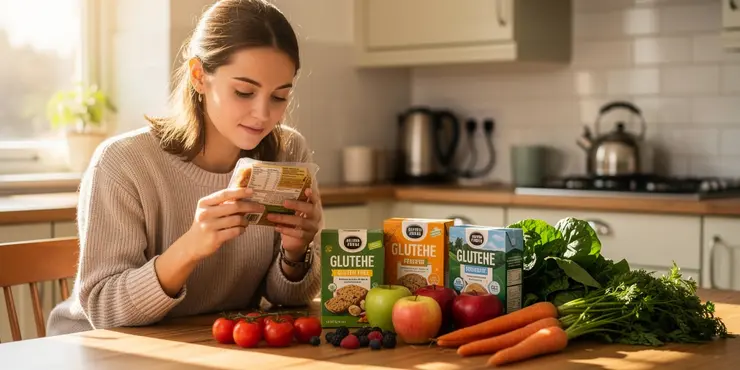
Coeliac Disease: The gluten free diet
Relevance: 85%
-
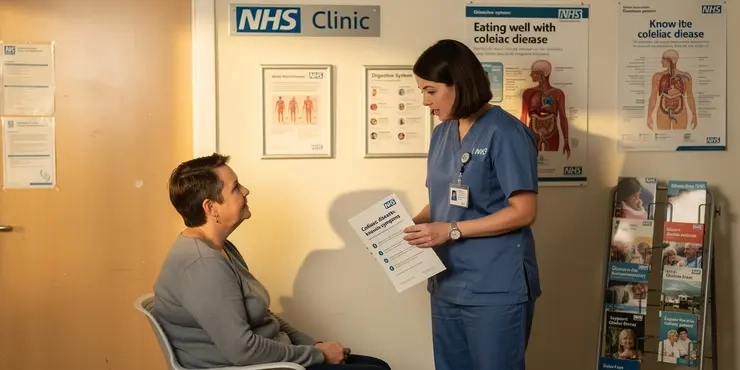
Coeliac Disease Explained - Gluten Sensitivity - A to Z of the NHS - Dr Gill
Relevance: 82%
-

What is the best diet for Crohn’s disease?
Relevance: 29%
-
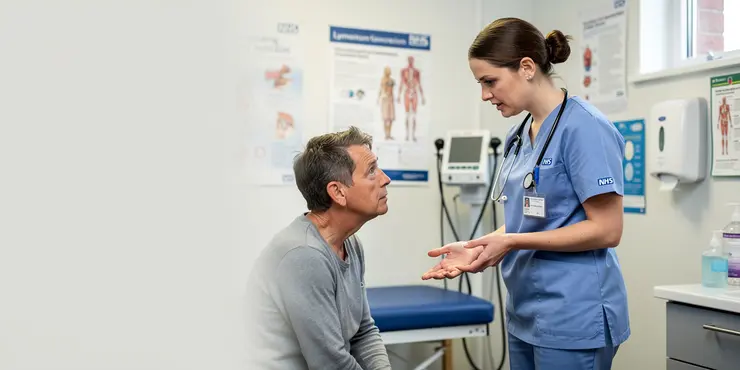
What is Lyme Disease?
Relevance: 28%
-
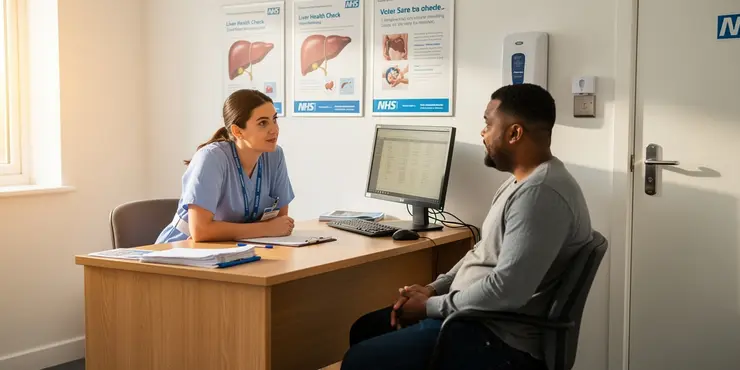
Liver disease | NHS
Relevance: 28%
-

Is Huntington's disease fatal?
Relevance: 28%
-
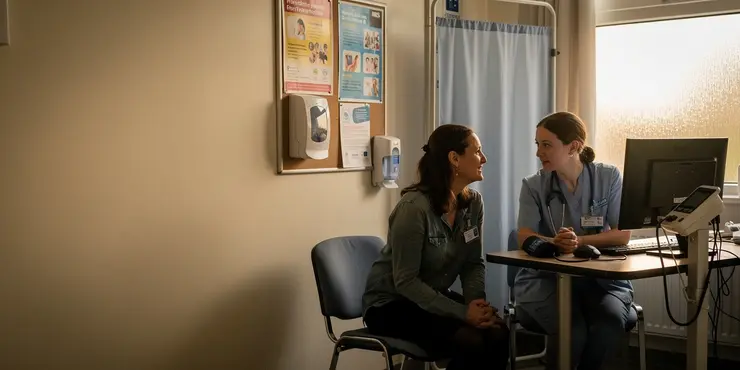
Is Crohn's disease contagious?
Relevance: 28%
-
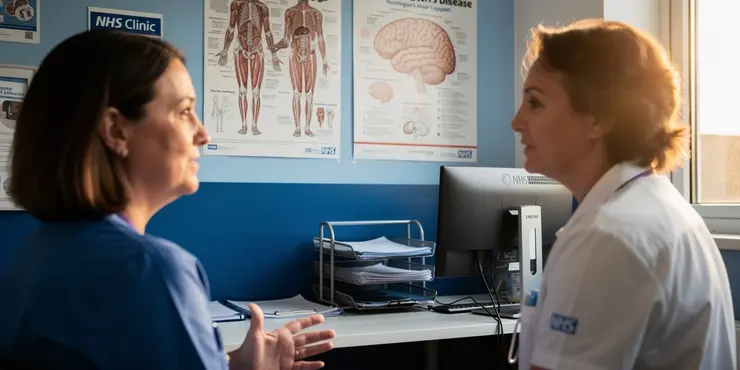
What is Huntington's disease?
Relevance: 28%
-
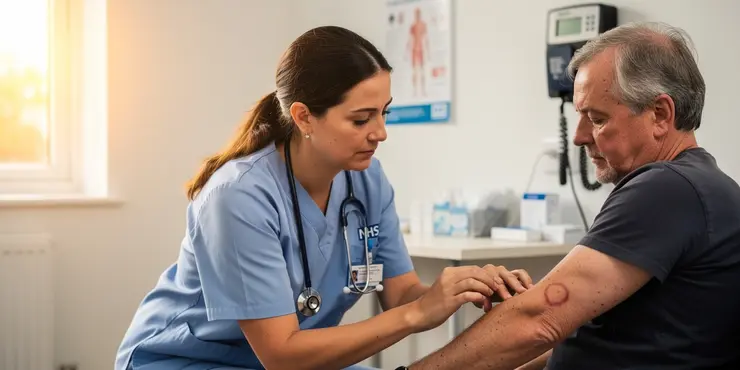
Lyme disease: What is it?
Relevance: 28%
-
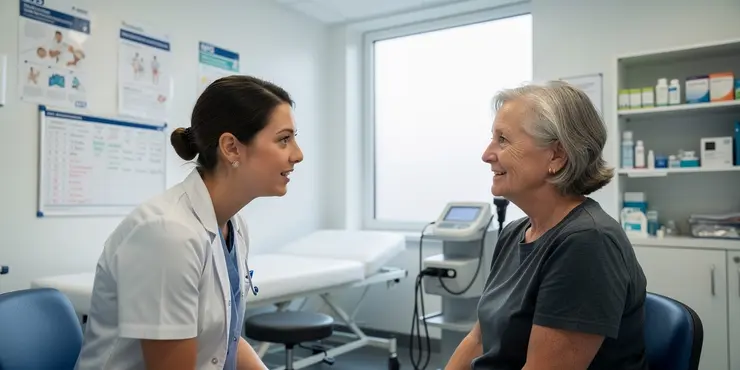
Is there a cure for Crohn's disease?
Relevance: 28%
-
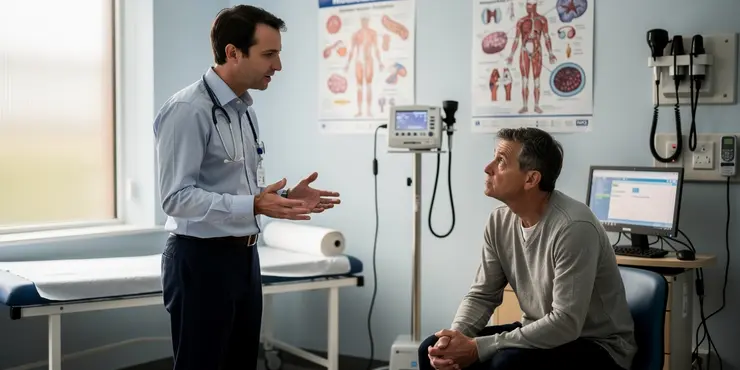
What is Mitochondrial disease?
Relevance: 28%
-
What is Parkinson's disease?
Relevance: 28%
-
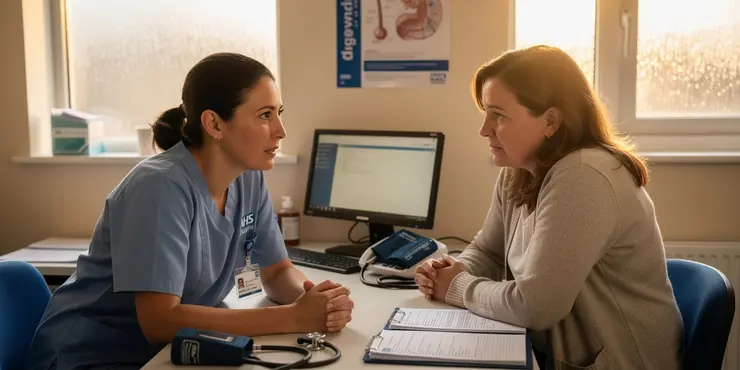
Is there a vaccine for Lyme disease?
Relevance: 27%
-
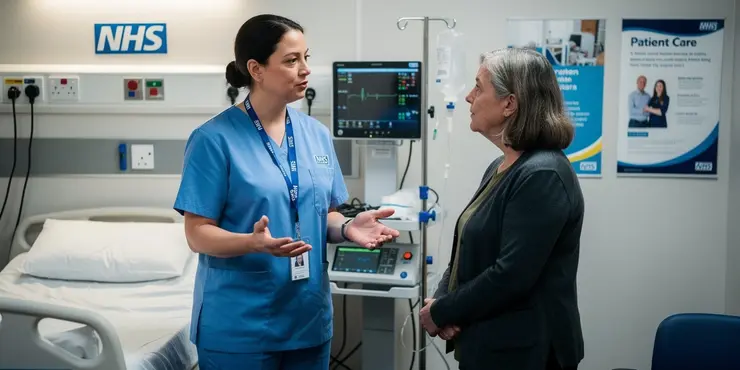
Is flesh-eating disease contagious?
Relevance: 27%
-
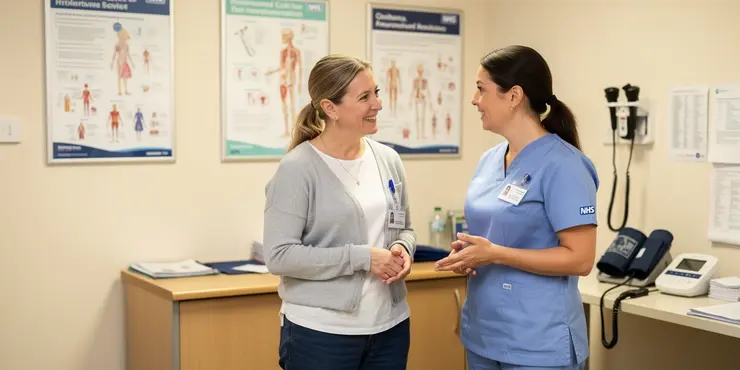
Do UK mosquitoes carry diseases?
Relevance: 27%
-

What is Alzheimer's disease?
Relevance: 27%
-
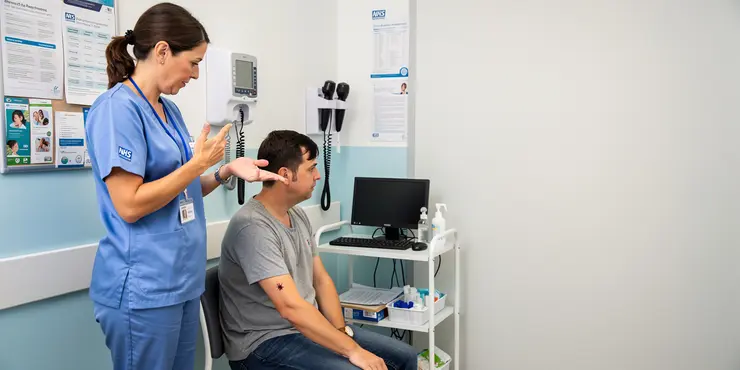
Do spiders in the UK carry diseases?
Relevance: 27%
-
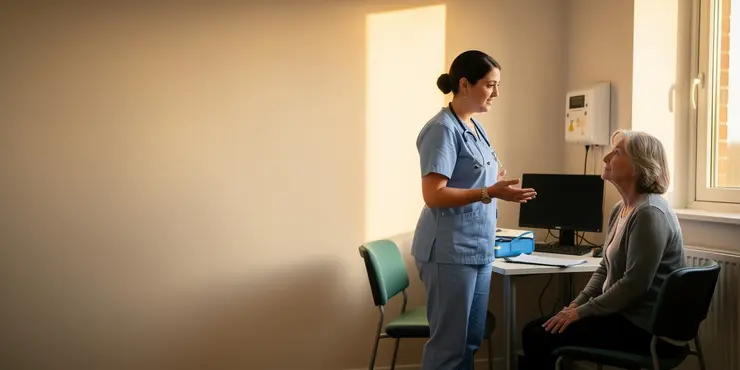
What causes Crohn's disease?
Relevance: 26%
-
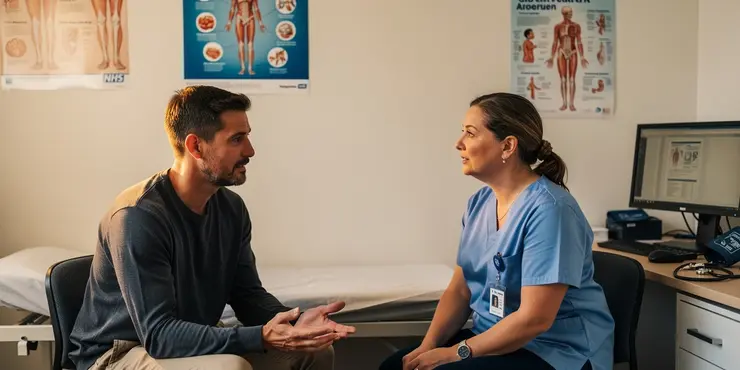
What causes Huntington's disease?
Relevance: 26%
-
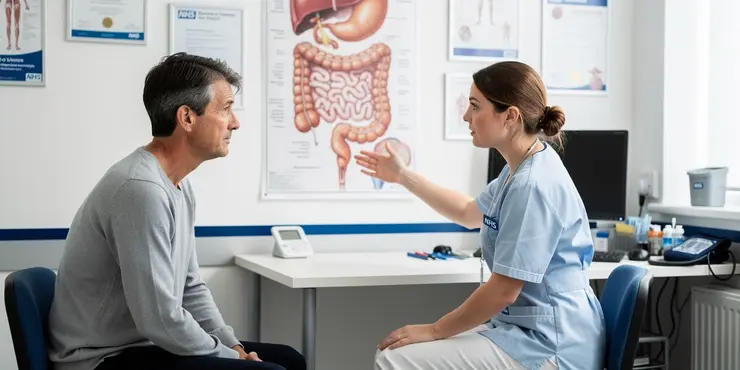
How is Crohn's disease diagnosed?
Relevance: 26%
-
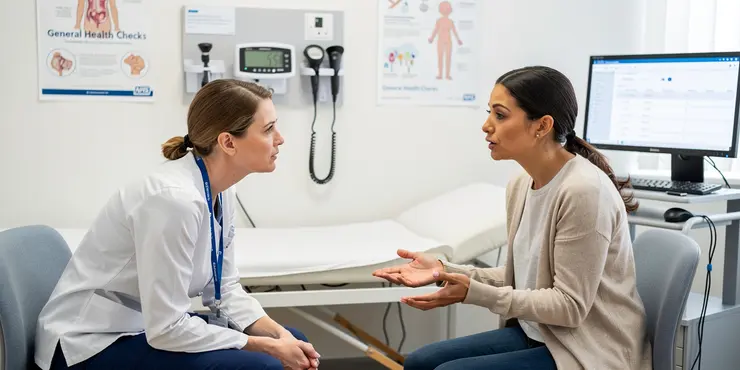
Can Lyme disease be treated?
Relevance: 26%
-
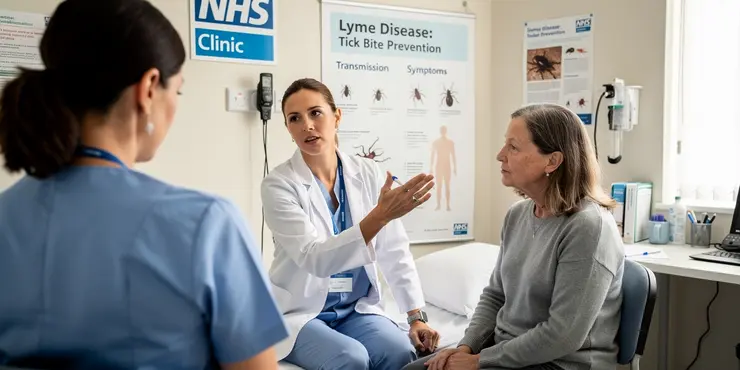
How is Lyme disease transmitted?
Relevance: 26%
-
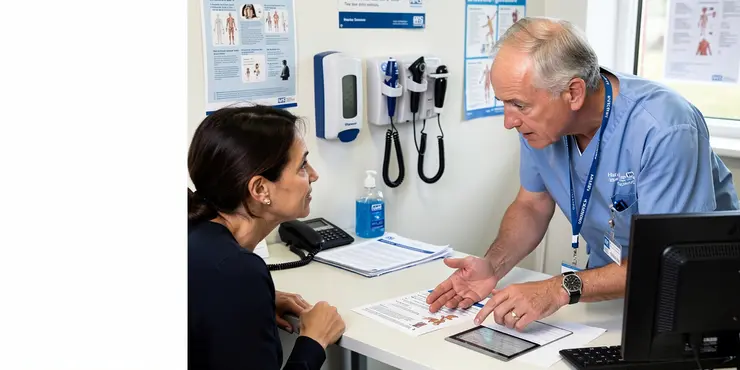
What is a flesh-eating disease?
Relevance: 26%
-
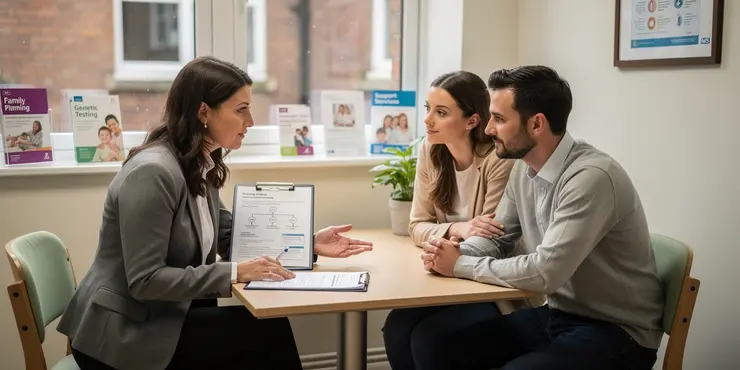
Can Huntington's disease be prevented?
Relevance: 26%
-
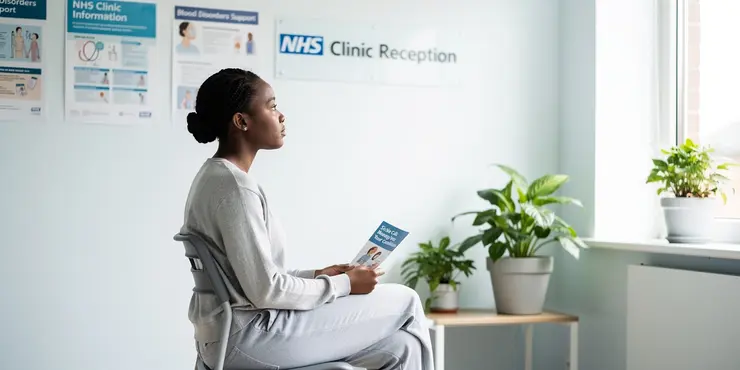
What is sickle cell disease?
Relevance: 26%
-
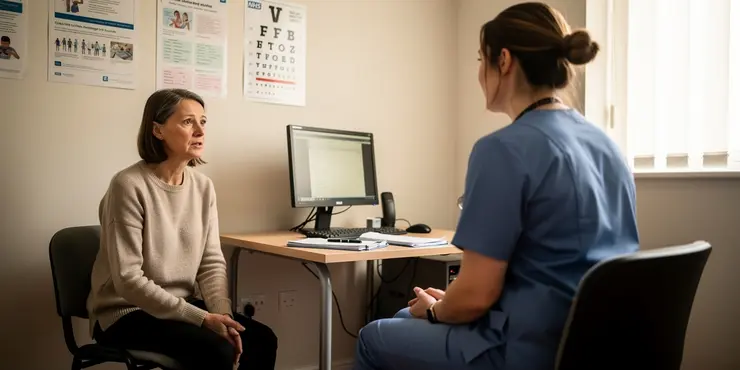
What are the symptoms of Huntington's disease?
Relevance: 26%
-
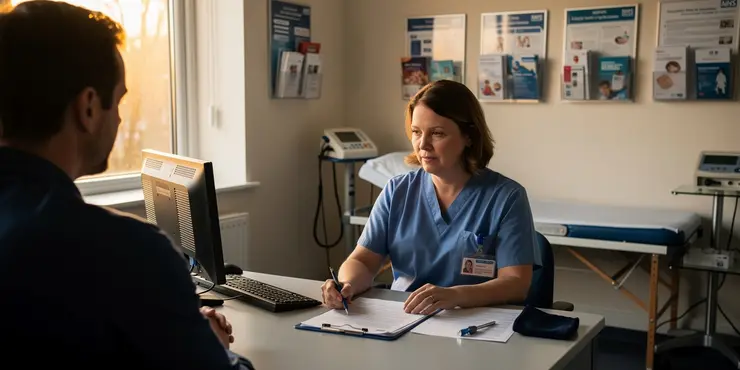
How is Huntington's disease diagnosed?
Relevance: 26%
-
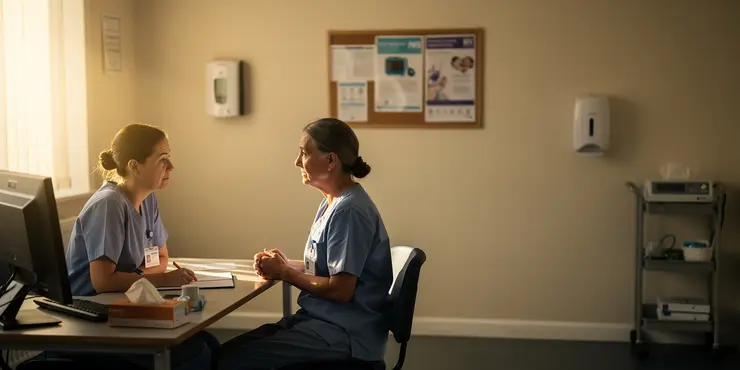
Can Huntington's disease be cured?
Relevance: 26%
-
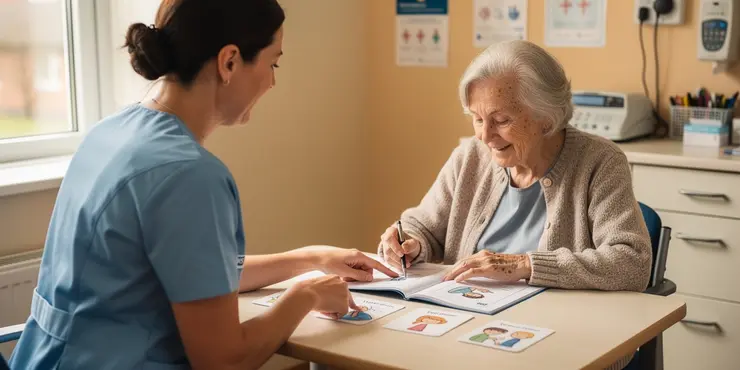
How common is Alzheimer's disease in the UK?
Relevance: 26%
-
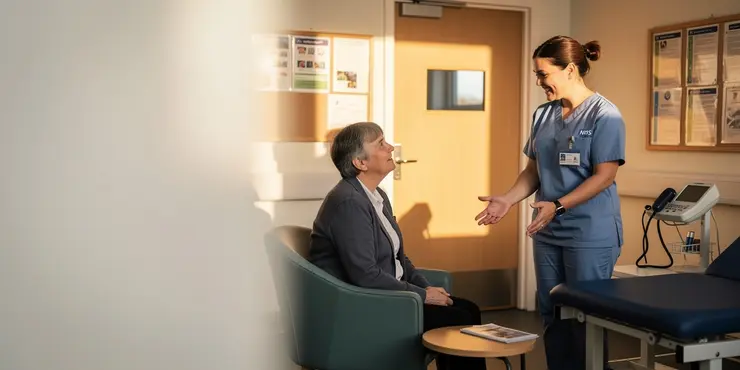
Introduction to Sickle cell disease
Relevance: 26%
-

Is surgery necessary for Crohn's disease?
Relevance: 26%
-
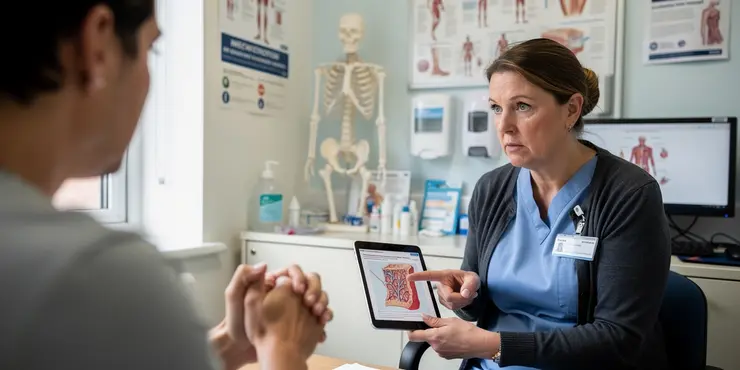
What is a flesh eating disease?
Relevance: 26%
-
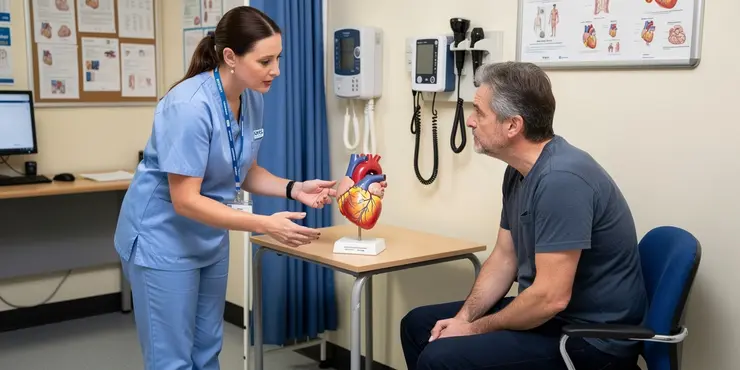
What is heart valve disease?
Relevance: 26%
What is Coeliac Disease?
Coeliac Disease is an autoimmune disorder that affects the digestive system, primarily the small intestine. When people with this condition consume gluten—a protein found in wheat, barley, and rye—their immune system responds by attacking the lining of the small intestine. This can lead to a variety of health issues due to malabsorption of nutrients.
Symptoms of Coeliac Disease
The symptoms of Coeliac Disease vary widely among individuals and can range from mild to severe. Common symptoms include:
- Abdominal pain and bloating
- Chronic diarrhoea or constipation
- Fatigue and weakness
- Unexplained weight loss
- Anaemia due to iron deficiency
- Bone or joint pain
- Skin rashes, such as dermatitis herpetiformis
It's important to note that some people with Coeliac Disease may be asymptomatic, yet still at risk for long-term complications.
Diagnosis and Treatment
Diagnosing Coeliac Disease typically involves a combination of blood tests and a biopsy of the small intestine. Blood tests look for specific antibodies that are usually elevated in individuals with the condition. If these tests are positive, a biopsy is often performed to confirm the diagnosis by examining the damage to the intestinal lining.
The only effective treatment for Coeliac Disease is a strict, lifelong gluten-free diet. This means avoiding all foods and drinks containing wheat, barley, and rye. Many naturally gluten-free foods, such as fruits, vegetables, meat, fish, and dairy, can be safely consumed. Additionally, many products in the UK are labelled as gluten-free, making it easier to manage the condition.
Living with Coeliac Disease in the UK
In the UK, awareness of Coeliac Disease is relatively high, and many resources are available for those living with the condition. The charity Coeliac UK offers support, information, and guidance, and there are numerous gluten-free products available in supermarkets. Moreover, an increasing number of restaurants provide gluten-free menu options, helping people with Coeliac Disease dine out safely.
Regular follow-up appointments with healthcare providers are crucial to monitor health and nutritional status, ensuring a high quality of life despite the dietary restrictions. With appropriate management, individuals with Coeliac Disease can lead healthy, active lives.
What is Coeliac Disease?
Coeliac Disease affects your tummy and how you digest food. If you have this disease and eat something with gluten, it can harm your small intestine. Gluten is a protein found in wheat, barley, and rye. When this happens, your body might not get all the nutrients it needs from food.
Symptoms of Coeliac Disease
People with Coeliac Disease can have different symptoms. Some of them are:
- Tummy pain and bloating
- Diarrhoea (runny poo) or constipation (hard poo)
- Feeling very tired and weak
- Losing weight without trying
- Feeling weak because of low iron levels
- Pain in bones or joints
- Skin rashes
Some people might not feel any symptoms, but they still need to be careful as it can cause other problems later on.
Diagnosis and Treatment
To find out if someone has Coeliac Disease, doctors can do blood tests. These tests check for things that show the disease might be there. If the tests show signs of the disease, doctors might look at the small intestine to be sure.
The best way to treat Coeliac Disease is to stop eating gluten. This means no foods with wheat, barley, and rye. There are lots of foods you can eat safely, like fruits, vegetables, meat, fish, and dairy. In the UK, you can find many foods with labels saying they are gluten-free.
Living with Coeliac Disease in the UK
In the UK, many people know about Coeliac Disease, and there is help available. The charity called Coeliac UK can give you support and advice. Many shops sell gluten-free foods, and lots of restaurants also offer gluten-free meals.
It’s important to see your doctor regularly to make sure you stay healthy and get the nutrients you need. With the right help and by avoiding gluten, people with Coeliac Disease can live full and active lives.
Frequently Asked Questions
What is Coeliac Disease?
Coeliac Disease is an autoimmune disorder where the ingestion of gluten leads to damage in the small intestine.
What causes Coeliac Disease?
Coeliac Disease is caused by an abnormal immune response to gluten, a protein found in wheat, barley, and rye.
Is Coeliac Disease the same as a wheat allergy?
No, a wheat allergy involves an allergic reaction to proteins found in wheat, while Coeliac Disease is an autoimmune response specifically to gluten.
What are the common symptoms of Coeliac Disease?
Symptoms can include diarrhoea, abdominal pain, bloating, and nutrient deficiencies, but some people might be asymptomatic.
How is Coeliac Disease diagnosed?
Diagnosis typically involves blood tests for specific antibodies and an endoscopy with a biopsy of the small intestine to check for damage.
Can Coeliac Disease develop at any age?
Yes, Coeliac Disease can develop at any age, although it is often diagnosed in childhood or in mid-adulthood.
What foods contain gluten?
Gluten is found in foods made with wheat, barley, and rye, such as bread, pasta, cereals, and many processed foods.
Is there a cure for Coeliac Disease?
Currently, there is no cure for Coeliac Disease. The only treatment is a strict, lifelong gluten-free diet.
What is the prevalence of Coeliac Disease in the UK?
Coeliac Disease affects about 1% of the population in the UK, though many cases remain undiagnosed.
Can people with Coeliac Disease eat oats?
Plain oats are naturally gluten-free, but they can be contaminated with gluten during processing. Only oats labelled as gluten-free are safe for people with Coeliac Disease.
What are long-term risks if Coeliac Disease is not managed?
Untreated Coeliac Disease can increase the risk of developing other autoimmune disorders, osteoporosis, infertility, neurological conditions, and certain cancers.
Can gluten-free foods still cause issues for people with Coeliac Disease?
Yes, cross-contamination with gluten can occur. It's important to ensure that food is prepared and served in a manner that avoids such contamination.
Are there any support groups for individuals with Coeliac Disease in the UK?
Yes, organizations like Coeliac UK offer support, resources, and advocacy for individuals with Coeliac Disease.
Can children outgrow Coeliac Disease?
No, Coeliac Disease is a lifelong condition. Children diagnosed with Coeliac Disease will need to maintain a gluten-free diet throughout their lives.
Is it safe to consume trace amounts of gluten if I have Coeliac Disease?
No, even small amounts of gluten can trigger an immune response and cause damage to the small intestine in people with Coeliac Disease.
What is Coeliac Disease?
Coeliac Disease is a sickness. It happens when your body cannot eat something called gluten. Gluten is found in foods like bread and pasta. If someone with Coeliac Disease eats gluten, it can make them feel very sick.
People with Coeliac Disease need to eat special foods that do not have gluten. They can find these foods by looking for labels that say "gluten-free."
If you think you might have Coeliac Disease, it is important to talk to a doctor. They can help you find out for sure and tell you what to do next.
Tools like picture charts or apps that scan food labels can help people choose the right foods.
Coeliac Disease is when your body's own defense system harms your small intestine when you eat gluten.
What causes Coeliac Disease?
Coeliac Disease happens when the body doesn't like gluten. Gluten is found in foods like bread and pasta.
If someone with Coeliac Disease eats gluten, it can make their tummy hurt. It can also make them feel very unwell.
If you think you might have Coeliac Disease, it is important to see a doctor.
It's helpful to:
- Use apps to learn more about gluten-free foods.
- Talk to a dietitian to find out what foods are safe to eat.
Coeliac Disease happens when the body has a bad reaction to gluten. Gluten is a protein in foods like bread, pasta, and cereal because it is in wheat, barley, and rye.
Is Coeliac Disease the same as a wheat allergy?
No, they are not the same.
Coeliac Disease and a wheat allergy are different. Here is how:
- Coeliac Disease: The body becomes sick when eating gluten, which is in wheat, barley, and rye. The body's defense system attacks its own body. A doctor can help find out if you have this.
- Wheat Allergy: The body mistakes wheat as a bad thing and tries to fight it. This can cause itching, swelling, or trouble breathing. This is like how some people are allergic to peanuts or bees.
People with Coeliac Disease need to avoid gluten, not just wheat. People with a wheat allergy need to avoid wheat.
If you think you have one of these, talk to a doctor. They can help you feel better and tell you what foods to avoid.
No, a wheat allergy and Coeliac Disease are not the same.
If you have a wheat allergy, your body reacts badly to proteins in wheat. If you have Coeliac Disease, your body has a strong reaction to just one part of wheat called gluten.
If you find reading hard, try using tools like audiobooks or apps that read text out loud. They can help you understand better.
What signs show that someone might have Coeliac Disease?
Here are some signs to look for:
- Tummy aches and cramps
- Feeling tired a lot
- Diarrhea or soft poo
- Weight loss
- Feeling bloated or gassy
- Feeling weak or dizzy
Using pictures or videos can help understand these signs better. Talking to a doctor is also a good idea.
Some signs of feeling unwell are having loose poo, a tummy ache, feeling full and gassy, and not getting enough vitamins. But some people might not feel sick at all.
How do doctors find out if someone has Coeliac Disease?
To find out if someone is sick, doctors do some tests. They take some blood to test it. They also use a small camera to look inside the belly and take a tiny piece from the small intestine to see if it is hurt.
If you find this hard to understand, you can ask someone to explain it to you. You can also use pictures or videos to help you learn more about it.
Can you get Coeliac Disease at any age?
Yes, you can get Coeliac Disease at any age. It can start when you are a child or when you are an adult.
If you feel sick after eating foods with gluten (like bread or pasta), talk to a doctor.
Using tools like picture cards or apps that help with reading can make learning about Coeliac Disease easier.
Yes, people can get Coeliac Disease at any age. It is often found in children or adults in middle age.
Which foods have gluten?
Some foods have gluten. Gluten is something in certain foods that can be hard for some people to eat.
- Bread: Many types of bread have gluten.
- Pasta: Most pasta is made from wheat and has gluten.
- Cakes and Cookies: These are usually made with flour that has gluten.
- Cereal: Breakfast cereals can have gluten, unless they say they are gluten-free.
- Crackers: Many crackers are made from grains that have gluten.
If you can’t eat gluten, look for foods that say "gluten-free" on the package. You can also use a phone or computer to scan labels for gluten. Ask someone you know for help if you need it.
Gluten is in some foods. It is in wheat, barley, and rye. This means it is in bread, pasta, and cereals. It is also in many other foods that are made in factories.
Can Coeliac Disease be Cured?
No, Coeliac Disease cannot be cured. But you can feel better by not eating foods with gluten. Gluten is in foods like bread and pasta.
Ask your doctor for help. You can also use apps to check if foods have gluten.
There is no way to make Coeliac Disease go away. The only thing you can do is eat a special diet. This diet has no gluten in it. You need to eat like this for your whole life.
How many people have Coeliac Disease in the UK?
Coeliac Disease is a health problem that some people have. It affects about 1 out of every 100 people in the UK. Many people do not know they have it.
Can people with Coeliac Disease eat oats?
Some people with Coeliac Disease can eat oats, but some cannot. Oats might have gluten because they are made in places with other grains. If you have Coeliac Disease, talk to your doctor before eating oats.
Here are some tips to help you decide:
- Look for oats that say "gluten-free" on the package.
- Ask your doctor if you can eat oats.
- Try a small amount first to see if you feel okay.
Plain oats do not have gluten. But sometimes they can get gluten when they are made in a factory. Only eat oats that say "gluten-free" on the box if you can't have gluten. This is important for people with Coeliac Disease.
What can happen if Coeliac Disease is not looked after for a long time?
If Coeliac Disease is not treated, it can cause other health problems. These can include other diseases where the body attacks itself, weak bones, trouble having babies, problems with the brain, and some types of cancer.
Can gluten-free foods still cause problems for people with Coeliac Disease?
Even when food says "gluten-free," it can sometimes still make someone with Coeliac Disease feel sick.
Here are some tips to help:
- Always check food labels carefully.
- Look for food that is certified gluten-free.
- Be careful about cross-contamination. This means keeping gluten-free food away from food with gluten.
- Ask your doctor for advice if you're not sure.
Yes, food can get mixed with gluten by accident. It's important to make food in a way that keeps it safe from getting mixed with gluten.
Is there help for people with Coeliac Disease in the UK?
If you have Coeliac Disease, there are groups that can help you.
You can talk to other people with Coeliac Disease. They can give you tips and support.
You can also use websites to learn more. Try looking online for support groups near you.
Ask a friend or family member to help you find a group. They can help you use the internet.
Yes, there is a group called Coeliac UK. They help people who have Coeliac Disease. They give support and useful information.
Do children stop having Coeliac Disease as they grow up?
Some children with Coeliac Disease might get better when they grow up, but not everyone does. It is important to talk to a doctor to know what is best for each child.
Helpful tools:
- Use simple picture books about food and health.
- Watch videos made for kids about Coeliac Disease.
- Ask a grown-up to help explain tricky parts.
No, Coeliac Disease lasts forever. Kids who have Coeliac Disease need to eat gluten-free food always.
Is it safe to eat a little gluten if I have Coeliac Disease?
If you have Coeliac Disease, you should not eat gluten. Gluten is bad for your body and can make you sick.
If you are not sure about what you can eat, you can:
- Ask a doctor or nurse for help.
- Use apps that help you find gluten-free foods.
- Read food labels to check for gluten.
- Join groups where people talk about gluten-free eating.
Make sure to stay careful and safe! Eating a little gluten can still hurt you.
No, even a little bit of gluten can make people with Coeliac Disease sick. It can hurt their tummy.
Useful Links
This website offers general information and is not a substitute for professional advice.
Always seek guidance from qualified professionals.
If you have any medical concerns or need urgent help, contact a healthcare professional or emergency services immediately.
Some of this content was generated with AI assistance. We’ve done our best to keep it accurate, helpful, and human-friendly.
- Ergsy carfully checks the information in the videos we provide here.
- Videos shown by Youtube after a video has completed, have NOT been reviewed by ERGSY.
- To view, click the arrow in centre of video.
- Most of the videos you find here will have subtitles and/or closed captions available.
- You may need to turn these on, and choose your preferred language.
- Go to the video you'd like to watch.
- If closed captions (CC) are available, settings will be visible on the bottom right of the video player.
- To turn on Captions, click settings .
- To turn off Captions, click settings again.
More Items From Ergsy search
-

Coeliac Disease: Session 1: What is Coeliac Disease?
Relevance: 100%
-

Coeliac disease
Relevance: 100%
-

Causes of coeliac disease
Relevance: 95%
-

Symptoms of coeliac disease
Relevance: 93%
-

NHSGGC - What is Coeliac Disease?
Relevance: 92%
-

Living Well with Coeliac Disease
Relevance: 90%
-

Diagnosing Coeliac Disease Updated 2021
Relevance: 88%
-

Coeliac Disease: The gluten free diet
Relevance: 85%
-

Coeliac Disease Explained - Gluten Sensitivity - A to Z of the NHS - Dr Gill
Relevance: 82%
-

What is the best diet for Crohn’s disease?
Relevance: 29%
-

What is Lyme Disease?
Relevance: 28%
-

Liver disease | NHS
Relevance: 28%
-

Is Huntington's disease fatal?
Relevance: 28%
-

Is Crohn's disease contagious?
Relevance: 28%
-

What is Huntington's disease?
Relevance: 28%
-

Lyme disease: What is it?
Relevance: 28%
-

Is there a cure for Crohn's disease?
Relevance: 28%
-

What is Mitochondrial disease?
Relevance: 28%
-
What is Parkinson's disease?
Relevance: 28%
-

Is there a vaccine for Lyme disease?
Relevance: 27%
-

Is flesh-eating disease contagious?
Relevance: 27%
-

Do UK mosquitoes carry diseases?
Relevance: 27%
-

What is Alzheimer's disease?
Relevance: 27%
-

Do spiders in the UK carry diseases?
Relevance: 27%
-

What causes Crohn's disease?
Relevance: 26%
-

What causes Huntington's disease?
Relevance: 26%
-

How is Crohn's disease diagnosed?
Relevance: 26%
-

Can Lyme disease be treated?
Relevance: 26%
-

How is Lyme disease transmitted?
Relevance: 26%
-

What is a flesh-eating disease?
Relevance: 26%
-

Can Huntington's disease be prevented?
Relevance: 26%
-

What is sickle cell disease?
Relevance: 26%
-

What are the symptoms of Huntington's disease?
Relevance: 26%
-

How is Huntington's disease diagnosed?
Relevance: 26%
-

Can Huntington's disease be cured?
Relevance: 26%
-

How common is Alzheimer's disease in the UK?
Relevance: 26%
-

Introduction to Sickle cell disease
Relevance: 26%
-

Is surgery necessary for Crohn's disease?
Relevance: 26%
-

What is a flesh eating disease?
Relevance: 26%
-

What is heart valve disease?
Relevance: 26%


